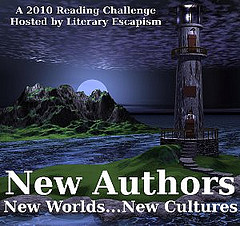
Mellas, the main protagonist, enters Vietnam as a lieutenant with a variety of ambitions for advancement and medals. He’s been to Ivy League schools, he’s had a charmed life compared to the others in the bush, but he likes to feel like one of the ordinary guys in the bush, though at the same time, he wants to fit in with the officers and to prove his worth. He’s a dichotomy in himself, displaying openly the struggle between the grunts and the officers within one man.
“Mellas was amazed and ashamed. He realized part of him would wish anything, and maybe even do anything, if it meant getting ahead or saving his own skin. He fought that part down.” (page 7)
Mellas is thrown into Bravo Company and told to take hold of Matterhorn, only to abandon it when the political forces deem Cam Lo a bigger priority. But by not having the support necessary from the base camps, his company runs out of water and other supplies, forced to hump through the jungle dehydrated and shot up. There is more than one instance in which this company is thrown into battle with impossible odds, which will remind many readers of the movies that glorify the marines and their victories. However, this novel shows readers the true nature of those “hollow” victories. While these men remain dedicated to their missions and each other, without proper strategy and backing their victories become senseless in the eyes of loss and terror. Even victories become jokes once the reports are made to the command posts and the reports of confirmed and probable dead are doctored — something that was common during the war.
“The records had to show two dead NVA. So they did. But at regiment it looked odd — two kills with no probables. So a probable got added. It was a conservative estimate. It only made sense that if you killed two, with the way the NVA pulled out bodies, you had to have some probables. It made the same sense to the commander of the artillery battalion: four confirmed, two probables, which is what the staff would report to Colonel Mulvaney, the commanding officer of Twenty-Fourth Marines, at the regiment briefing.” (page 91-2)
Mellas finds his place within the company and even becomes respected, but his continued ambition clouds much of his judgment and often forces him into situations that are more dangerous than they need to be. Beyond Mellas, the company is hampered by continued racial tensions between the “brothers” and their white counterparts, with some elements on both sides more violent and outspoken than others. Others are aware of the increased tension and racial hatred, but attempt to brush it under the rug or ignore it. The tension builds within the “brothers” camp, pitting China against Henry, in such a way that it can only be released in one way.
“Jackson folded his arms. ‘You think someone’s going to understand how you feel about being in the bush? I mean even if they’re like you in every way, you really think they’re going to understand what it’s like out here? Really understand?’
‘Probably not.’
‘Well, it’s like that being black. Unless you’ve been there, ain’t no way.'” (page 429)
As for the officers back at the base camp, readers will find in Lieutenant Colonel Simpson a possible mirror image for Mellas, depending on how well he reacts to combat situations and political decisions beyond his control. Simpson is often drunk, quick to anger, and makes rash decisions just with a few promptings from peers and underlings.
There are so many layers to Matterhorn, it is impossible to discuss them all in a review. Mellas is a troubled hero, but in a way the hero is not any individual Marine, but the jungle that surrounds them. It beats them down; it disguises the enemy; and it leaves them begging for mercy, but it also can provide them shelter; offer them food; and improve their chances of success. Psychological effects of war, loss, and camaraderie in highly intense situations can be devastating and enlightening. One of the best books I’ve read all year and easily one of the best books of the last decade. Readers interested in drama, tension, war-related literature, and human interactions and societal contexts will be as captivated by Matterhorn as any other book that has come onto the shelves.
This is my 63rd book for this challenge.
This is my 15th book for this challenge.



 Last month, we
Last month, we 


